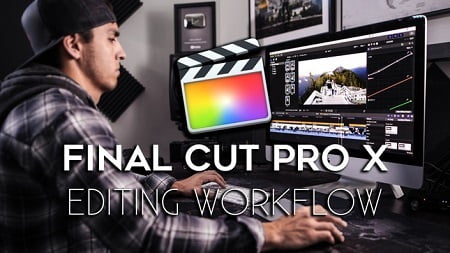
Windows Presentation Foundation Masterclass | 6.89 GB
Leverage WPF with C# and XAML to build real world skills with Azure, REST, MVVM and Machine Learning.
1. Intro to WPF:
1.1 Windows Presentation Foundation
1.2 Getting the Tools Ready
1.3 The Structure of a WPF project
1.4 Hello World with WPF
1.5 Hello World with WPF & .NET Core
1.6 .NET Core vs .Net Framework
2. XAML – The Calculator App:
2.1 What is XAML?
2.2 The XAML Syntax
2.3 Setting Property Values
2.4 The Grid
2.5 Communication with Code Behind
2.6 How XAML to C# Linking Works
2.7 Creating Event Handlers from XAML
3. C# – The Calculator App:
3.1 The C# Language
3.2 Creating Event Handlers from C#
3.3 Working with Methods
3.4 Using the Sender as a Button
3.5 Creating Custom Types
3.6 Testing the App
3.7 Displaying a Message Box
3.8 Percentage Challenge
4. Improving the UI with Resources and Styles:
4.1 Styling XAML Controls
4.2 XAML Static Resources
4.3 Application-Wide Resources
4.4 Implicit Styles
4.5 Explicit Styles
5. Practicing C#:
5.1 Creating a Console Project
5.2 Variables and Scope
5.3 Classes and Namespaces
5.4 Properties of a Class
5.5 Objects
5.6 Inheritance
5.7 Method Overloading
5.8 Method Overriding
5.9 Interfaces
5.10 Implementing an Interface
6. SQLite – The Contacts App:
6.1 Working with More Windows
6.2 Opening and Closing Windows
6.3 Adding SQLite
6.4 The Contacts Class
6.5 More SQLite Attributes
6.6 Inserting into a Table
6.7 The Using Statement
6.8 Reading from the Table
7. ListView:
7.1 Defining a ListView
7.2 The ToString method
7.3 Intro to DataBinding
7.4 Using an ItemTemplate
7.5 Filtering a List
7.6 Linq
7.7 Deleting from the Table
7.8 Update the SQLite Table
7.9 Update the ListView after closing the Window
8. Custom User Controls:
8.1 Creating a Custom User Control
8.2 Using Custom Controls
8.3 Binding to a Custom Control – Dependency Properties
8.4 Extend the ListView items
8.5 Improving the User Interface
9. REST and AI:
9.1 Microsoft’s CustomVision API
9.2 Creating a Custom Vision Project
9.3 Training the AI
9.4 Selecting a File from the Computer
9.5 Sending a request to the REST Service
9.6 Reading the Response as JSON
9.7 Deserializing JSON
9.8 Displaying the Results using a GridView
10. MVVM – The Weather App:
10.1 Intro to the MVVM pattern
10.2 AccuWeather API
10.3 The Endpoints that We Will Use
10.4 The Model
10.5 Defining the Classes
10.6 The View Model
10.7 Requests to the AccuWeather API
10.8 The View
10.9 Defining the UI
10.10 The INotifyPropertyChanged interface
10.11 Implementing the INotifyPropertyChanged interface
10.12 Binding Context and Design Time Binding
10.13 Using Design Mode Bindings
10.14 The ICommand interface
10.15 Implementing the ICommand interface
10.16 Binding the ICommand
10.17 Using a Command Parameter
10.18 The ObservableCollection class
10.19 Using the Observable Collection class – PART 1
10.20 Using the Observable Collection class – PART 2
10.21 The IValueConverter interface
10.22 Implementing the IValueConverter
11. Cloning Evernote:
11.1 The Model
11.2 The SQLite Functionality
11.3 The View Model
11.4 Working with Menus
11.5 Using a Toolbar
11.6 Displaying Notebooks and Notes
11.7 The RichTextBox and StatusBar
11.8 Speech Recognizer with .NET Core
11.9 Speech Recognizer with .NET Framework
11.10 Working with a ToggleButton
11.11 Working with a ComboBox
11.12 Creating Custom Controls
11.13 Adding a Context Menu – PART 1
11.14 Adding a Context Menu – Binding Event Handlers
11.15 Saving and Reading files
12. Google Firebase Services:
12.1 Define Login and Register View – Part 1
12.2 Define Login and Register View – Part 2
12.3 Registering user with Firebase Authentication
12.4 Logging users with Firebase Authentication
12.5 Inserting into a Firebase Database
12.6 Reading from a Firebase Database
12.7 Updating and deleting from a Firebase Database
13. Azure Storage Account Service:
13.1 Creating a Storage Account Service
13.2 Creating a Container
13.3 Connecting WPF to the Storage Account
13.4 Uploading a File to a Storage Account blob
13.5 Downloading a File from the Storage Account
14. Animations:
14.1 Intro to Blend
14.2 Exploring Blend for Visual Studio
14.3 Storyboards and Keyframes
14.4 Triggers for interactivity
14.5 Adding Easing Functions
15. Deploying your WPF App:
15.1 Adding a Window Icon
15.2 Complete the App Challenge
15.3 Preparing the Project
15.4 AppxUpload Package
15.5 The Microsoft Windows Store
16. Dependency Injection:
16.1 The Model
16.2 The View Model
16.3 The View
16.4 Creating the Interface
16.5 Unity Containers
17. Extra Information – Source code, and other stuff
17.1 Source Codes
17.2 Bonus Lecture and Information






